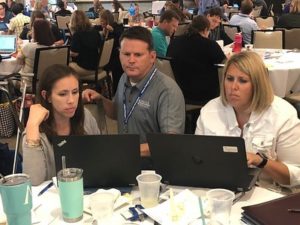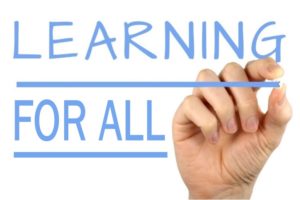- Home
- About
- Blog
- Photos
- AR Summaries
- Year 1
- AR Showcase 2024 – Cohort 11
- Communication
- Energy Enhancers
- Goal Setting
- Managing Stress and Distress
- Mapping My Day
- Meeting My Needs
- Reflection
- Time on Task
- AR Showcase 2020 – Cohort 7
- AR Showcase 2019 – Cohort 6
- AR Showcase 2018 – Cohort 5
- AR Showcase 2017 – Cohort 4
- AR Showcase 2016 – Cohort 3
- AR Showcase 2015 – Cohort 2
- Year 2
- AR Showcase of Schools 2020 – Cohort 6
- AR Showcase of Schools 2019 – Cohort 5
- AR Showcase of Schools 2018 – Cohort 4
- AR Showcase of Schools 2017 – Cohort 3
- AR Showcase of Schools Program 2017 – Cohort 3
- Building a Positive Collaborative Culture
- Creating an Instructional Model
- Implementing Character Education Behavior Programs
- Implementing Teacher Instructional Growth Goals
- Improving Communication
- Instructional Rounds/Walkthroughs
- Restructuring Meeting Time to Improve Teacher PD
- Other
- AR Showcase of Schools 2016 – Cohort 2
- Year 1
- Merchandise
- IPLI Extended
- Cohort 13 Applications
23
AUG
2018
I Wasn’t Good Enough: What I Learned After Leaving the Principalship
By Jack Parker, IPLI Cohort 5 Mentor and Assistant Superintendent of Teaching & Learning, Center Grove Community School Corporation
 I loved my nine years serving as a middle school principal. My experience, sandwiched by five years as an assistant principal and five years as a district administrator, was amazing. Our school seemed to be firing on all cylinders, earning many accolades and positive community support. If only I had known then what I know now…
I loved my nine years serving as a middle school principal. My experience, sandwiched by five years as an assistant principal and five years as a district administrator, was amazing. Our school seemed to be firing on all cylinders, earning many accolades and positive community support. If only I had known then what I know now…
One of the many things our school was proud of was our professional development program for teachers. My experience prior to the principalship was steeped in capacity building and adult learning theory, so bringing my growing abilities to bear helped to find processes where teachers were motivated to continually improve their instruction. What they did, how they supported one another, and how they grew, was a daily inspiration. We had our ups and downs with standardized assessment results, but the trends found us making moderate improvements with student learning and achieving at a relatively high level among other middle schools in the state. Strong teaching was a focus, and boy did that school have an abundance of excellent teachers.
This is my thirtieth year in public education, so I can say I’ve been around the block a few times. Being a part of many professional development and program initiatives designed to impact student performance has been a regular part of my experience. The thinking was that if teachers would teach better, students would learn more. Most always, we started the improvement cycle by looking at teaching. I’m not saying that is a bad thing, we’ve just been doing it backwards for many years.
Have you ever seen a great teacher who works hard, captivates the attention of his/her students on a regular basis, and is in command of a large toolbox of research-based instructional practices? I’m sure that everyone has had some of those teachers. Have you seen a teacher like that, who when standardized assessment results came in were surprised by the results…some years increasing and some years not? The years where scores didn’t improve may even have found that teacher mildly depressed. They had worked their tail off for 180 days, and the performance they sought from their students was still elusive.
I’ve found that this problem is usually not a teaching problem, which is what I was geared to solve. The problem of elusive results, I believe, is a learning problem. Let me explain.
I’ve often asked teachers this question: “In the absence of learning, does teaching exist?” That elicits many thoughts and emotions. There are a plethora of teachers who exhibit strong instructional abilities day in and day out with their students; however, is it possible that their students are not learning at the levels they need to learn? To get to the root of this enigma, one must come to an understanding on what we believe to be the definition of teaching. “Teach” is a verb and Merriam-Webster online notes that it is “to cause to know something…to cause to know how”. I am drawn to the two words: TO CAUSE. I may have done some great “teaching” but if students didn’t learn, I didn’t cause what I had hoped.
To cause something to happen takes purposeful work, collaboration, and a system…especially if what you are wanting to happen is difficult and complex. Our recipe in Center Grove is still simmering, but we have found that PLCs, coupled with a guaranteed & viable curriculum containing proficiency scales, is our best hope to ensure learning at high levels for all students. This symbiosis, where we can know each student’s proficiency on the learning progression at each topic level, makes our vision of learning for ALL possible. Joel Barker said it best when he said: “Vision without action is merely a dream. Action without vision just passes time. Vision with action can change the world.” I strongly believe that our symbiotic actions can actually make our vision a reality!
How did I come to this epiphany? It started with my exposure to some amazing minds as a mentor for both Cohort 1 and Cohort 5 of the Indiana Principal Leadership Institute. IPLI has been a wonderful experience for me. Through action research and exposure to ideas outlined in the High Reliability Schools™ framework, I have had experiences that sparked a change in the way I see instructional leadership. Of course, none of this is novel. I have learned from exposure and study of Marzano, DuFour(s), Heflebower, Schlechty, Mattos, Hoback, Hoegh, Rains, Warwick, Dweck, and Hattie.
What I learned since leaving the principalship is that focusing on improving teaching first, and then expecting learning to increase, can only get a school so far. Believing that all students can learn at high levels and not focusing on students and their learning first is nothing short of a pipe dream. It’s fanciful and quite frankly unobtainable.
